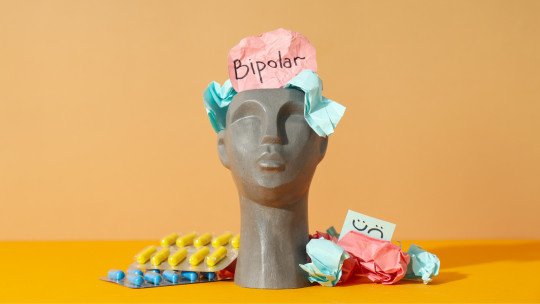We live in the digital age and that has allowed us to access information of all kinds quickly. Although this has allowed the normalization of many emotional and mental difficulties that, until now, carried a great stigma, it has also entailed some inconveniences.
Among them, we can highlight that the easy and quick access to certain information has contributed to the trivialization of the diagnoses of mental disorders. That is to say, It is easy for many people to consider that they have a certain mental pathology or diagnosis after simply having watched a 30-second video or reading a post.
This situation carries great risks and, therefore, in this article we will explain in detail why we cannot self-diagnose mental disorders. We begin by addressing their complexity so that we can then talk about the risks and consequences of self-diagnosis. Finally, we will explain the importance of these diagnoses being made by mental health professionals.
Understanding what a mental disorder is and its complexity
As indicated by the World Health Organization (WHO), a mental disorder is a clinically significant alteration in a person’s thoughts, emotion regulation, or behavior. It is often linked to high discomfort and difficulties functioning optimally in one or more areas of life.
There are many types of mental disorders and each one has its specific characteristics, also known as associated symptoms. They can vary in severity and nature, as well as the level of interference they generate in people’s functioning and lives. Their origin is multifactorial and multicausal, hence the complexity of diagnosing them.
It is understandable that our need for understanding and control leads us to want to name the things that happen to us. This usually gives us a false sense of security. However, The risks we run when making a self-diagnosis, especially in mental health, are many and can have a serious impact on our lives.
First of all, we must keep in mind that the information we obtain on social networks or even on the internet is usually limited. Furthermore, in many cases it is incomplete and/or outdated. It may even be the case that it is not true. With such limited information we do not understand the complexity of the situation.

As a consequence, it is very common for temporary and common aspects that are part of normality and everyday life (such as sadness, fear or stress) to be confused with mental disorders. Besides, Serious clinical conditions such as depression, schizophrenia, bipolarity and other disorders can be trivialized by using these nomenclatures indiscriminately, referring to common situations.
It is important to keep in mind that, on many occasions, people may be biased when interpreting or recognizing their own symptoms. Aspects such as the emotional state of the moment can also interfere with the perception of the supposed symptoms and this can lead us to consider certain situations as pathological which, again, are not.
Finally, we cannot forget that, although we are a whole and our body is interconnected, not everything that happens to us is psychological. Sometimes the symptoms we are suffering from have an organic, physical cause that we are not taking into account and we are not attending to or treating.
Consequences of self-diagnosis
The consequences that we can suffer after having self-diagnosed are relevant and we must be aware that they can impact our physical, emotional and mental health. The first thing we highlight is the minimization of the complexity of the human being, as well as the functioning of the psyche and the organism.
We must keep in mind that when we put a diagnostic label on ourselves, it is likely to have an impact on our self-esteem and self-concept. We may be generating a stigma about ourselves without meaning to and, at the same time, pathologizing aspects that are not an illness.
In this sense, we can also fall into the normalization of certain situations that could be warning signs and such trivialization leads us to seek inappropriate treatment. It is not unusual for many people to resort to ineffective and inappropriate interventions that can also be dangerous. With all this, asking for help from specialized professionals is usually delayed.
As if what has been mentioned so far were not enough, self-diagnosis is associated with greater worry, anxiety and discomfort in most cases. This stems from misinterpretation of symptoms. Being constantly aware of whether we have certain symptoms generates enormous concern with strong repercussions on physical and mental health and this can feed back on previous ideas. It is relatively easy to fall into a kind of vicious circle in which the discomfort becomes more and more intense.
The importance of professional diagnosis
Although it has already been mentioned on many occasions, we cannot stop insisting on the complexity that characterizes the human being. Mental disorders originate from various causes that encompass biological, psychological and social aspects. Each person is unique and, therefore, it is essential to study each case individually.
Mental health professionals, mainly psychologists and psychiatrists, are widely trained and trained to take into account all the necessary aspects. In order to establish a diagnosis, it is necessary to carry out an exhaustive study in which tools such as interviews, psychometric tests and observation are usually included, in addition to diagnostic manuals where the clinical criteria are indicated.
Once the evaluation has been carried out that allows a greater understanding of that person’s situation, the professional returns and explains his or her findings to the patient. From there, a personalized intervention plan is created and adjusted to the needs of each being. In addition, professionals also provide emotional support during the process.










